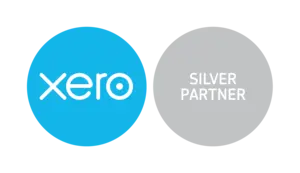The Crypto Tax Net Is Tightening
If your business deals with crypto, whether accepting Bitcoin payments, dabbling in NFTs, or investing in Ethereum, HMRC is stepping up its oversight.
Starting 1 January 2026, new rules under the OECD’s Crypto-Asset Reporting Framework (CARF) will require crypto platforms to report user and transaction data directly to HMRC.
This includes personal details like names, addresses, and national insurance numbers, as well as transaction specifics such as value and type of cryptoasset.
The first reports, covering the 2026 calendar year, are due by 31 May 2027.
Who Needs to Report?
If you’re a UK-based business providing cryptoasset services like exchanges, wallets, or brokerage services, you’ll be classified as a Reporting Cryptoasset Service Provider (RCASP).
RCASPs must collect and report data on users who are tax residents in the UK or other CARF-participating countries. Click for government guidance.
Even if your business isn’t directly involved in crypto services, if you accept crypto payments or hold cryptoassets, you may still have reporting obligations. Click for government guidance.
What Information Must Be Collected?
For each relevant user, RCASPs need to gather:
- Personal Details: Name, date of birth, home address, country of residence, and national insurance number or tax identification number.
- Transaction Data: Type of cryptoasset, transaction type (e.g., buy, sell, exchange), number of units, and value in GBP.
This information must be verified for accuracy, and incomplete or inaccurate reporting can lead to penalties of up to £300 per user.
Key Dates to Remember
- 1 January 2026: Start collecting required data.
- 31 May 2027: Deadline to submit the first report covering 2026.
- Annually Thereafter: Reports due by 31 May for the previous calendar year.
Penalties for Non-Compliance
Failing to comply with the new reporting requirements can result in:
- A penalty of up to £300 per user for non-reporting, late reporting, or inaccurate/incomplete reports.
- Additional penalties if HMRC deems the non-compliance deliberate. Click for ICAEW guidance.
How RedBrick Can Help
At RedBrick, we understand that these new requirements can be complex and time-consuming. We’re here to:
- Assess Your Obligations: Determine if your business qualifies as an RCASP.
- Implement Compliance Processes: Set up systems to collect and verify the necessary data.
- Prepare and Submit Reports: Ensure timely and accurate reporting to HMRC.
Our goal is to provide a better home for your business finances, help support you through changes like this, and ensure everything makes sense to you.
Get in Touch
If you’re unsure about how these new rules affect your business or need assistance with compliance, we’re here to help.
For a better home for your business finances, email: hello@redbrickaccounting.com




